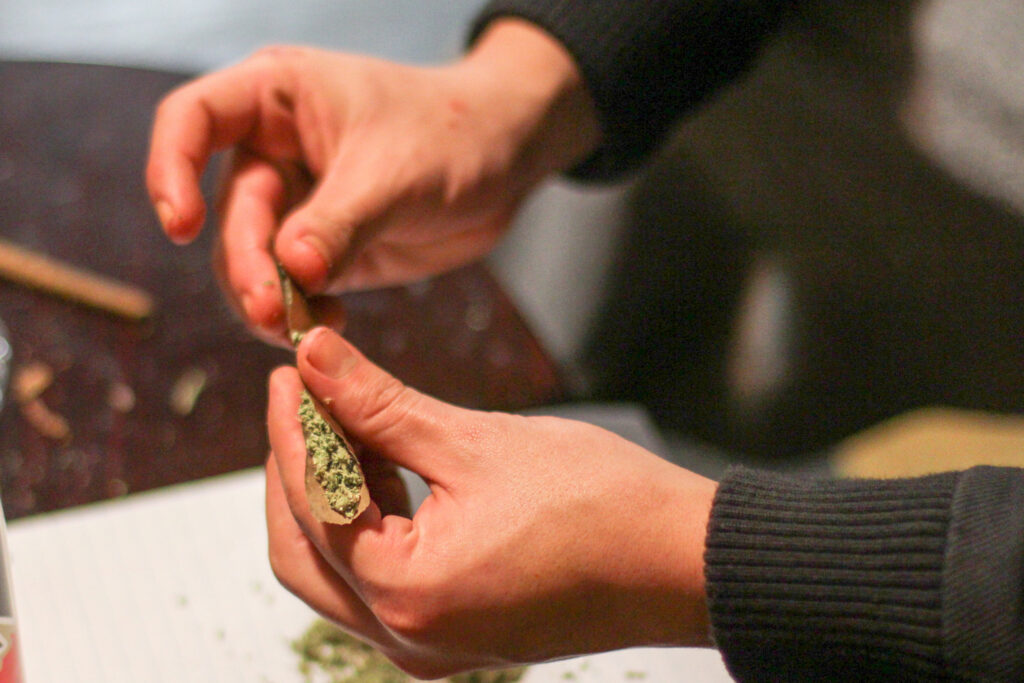A newly filed bill in New York would allow future marijuana consumption lounges to sell non-infused food, non-alcoholic beverages and hold live performances such as concerts.
The legislation from Assemblymember John Zaccaro (D) seeks to amend the state’s cannabis legalization law as it concerns on-site consumption licenses, none of which have yet been licensed as regulators take a methodical approach to launching the legal marijuana market.
Under the current law, consumption lounge licensees are prohibited from allowing certain activities on their premises—including “gambling, exposing or simulating, contests, or fireworks.”
Zaccaro’s bill would clarify what activities and services the operators could offer. Specifically, it stipulates that on-site consumption facilities could sell non-infused food and non-alcoholic drinks. They could also allow and sell tickets for “live musical or other performances not otherwise prohibited” under statute.
It’s unclear when the state’s first consumption lounge licenses will be awarded, or if the bill will be enacted before those businesses get approved. But the proposed reform represents one of the latest efforts by lawmakers to diversify the market.
After a slow initial rollout in late 2022, what’s expected to eventually be a massive state marijuana market is finally gaining steam. Late last month, OCM reported that state-licensed retailers had sold more than $1 billion worth of legal cannabis products.
OCM’s acting executive director, Felicia Reid, said last week that it’s possible the state could double its adult-use marijuana sales in the coming year, potentially reaching $1.5 billion in cannabis purchases during 2025. Another OCM official said he expected “over 350 dispensaries to open in 2025.”
Meanwhile, state regulators released a package of annual reports last week that emphasized their work to promote social equity in the marketplace and crack down on illicit operators.
This past October, the office in a separate report acknowledged what it called “growing pains” during the launch of the New York’s adult-use market—including a slow market rollout, leadership controversies and so-called “predatory deals” around the state’s marijuana social equity fund—but also said they were confident the state was poised for success.
In November, Assembly Majority Leader Crystal Peoples-Stokes called for the state to extend financial aid to retail operators operators struggling under high-cost loans from a social equity fund created as a core part of the legalization program.
Later in the month, Hochul signed two new cannabis-related bills into law—one to revive the Cannabis Growers Showcase program, where producers sell products directly to consumers at farmers market-style events, and another clarifying that cannabis is categorized as an agricultural crop in the state.
The governor argued in June, meanwhile, that there’s a direct correlation between stepped-up enforcement and “dramatically” increased legal sales. A report by state officials last year found both “growing pains” and “successful efforts” in New York’s marijuana market launch.



